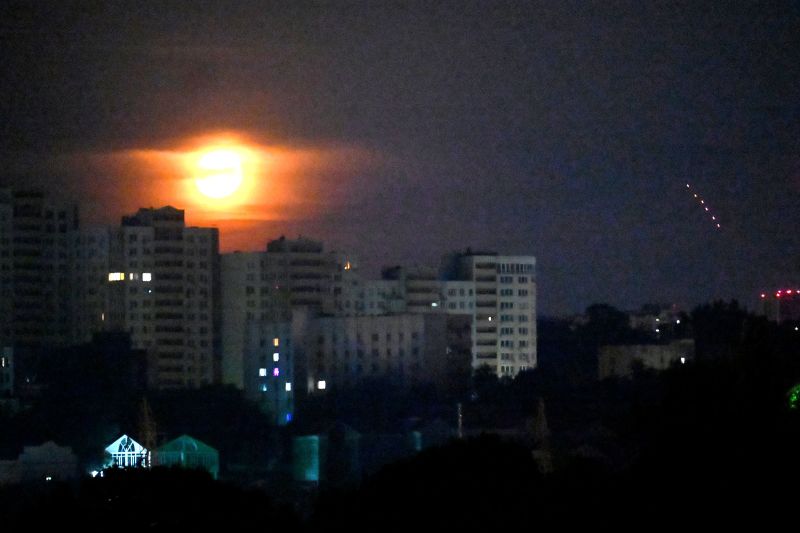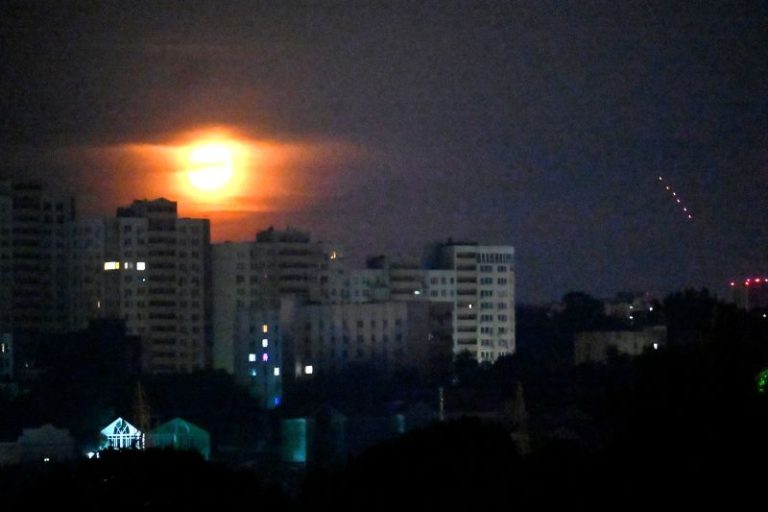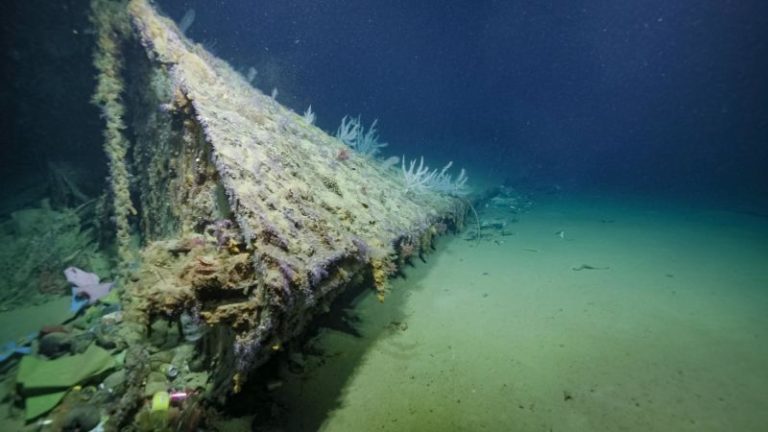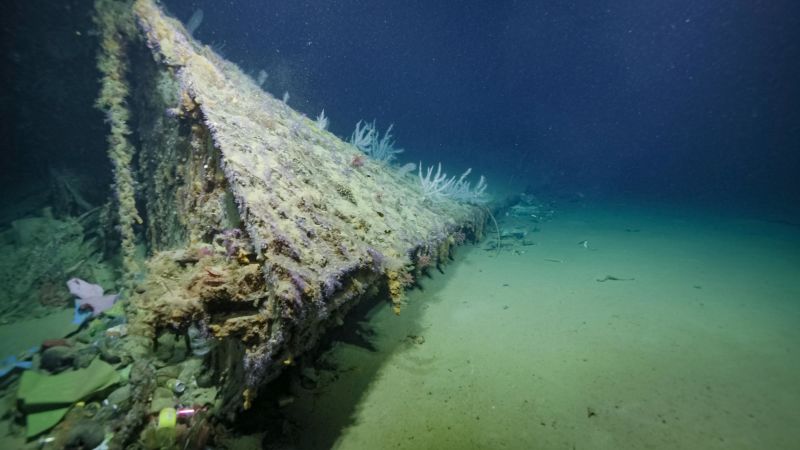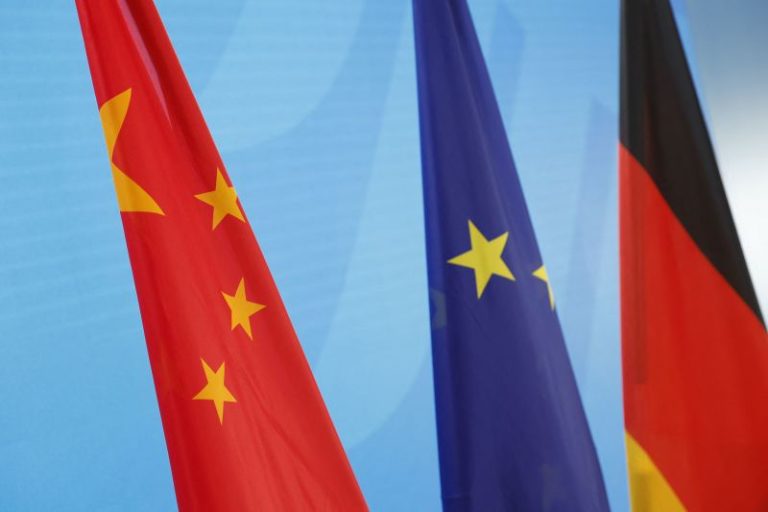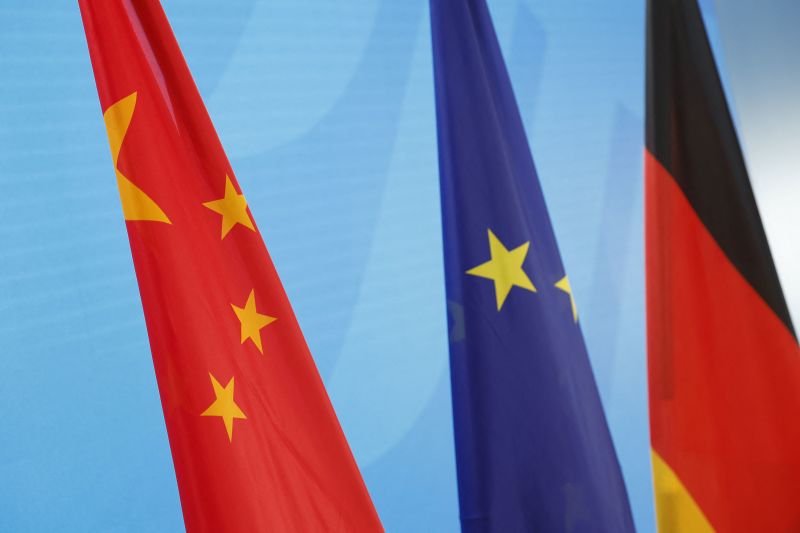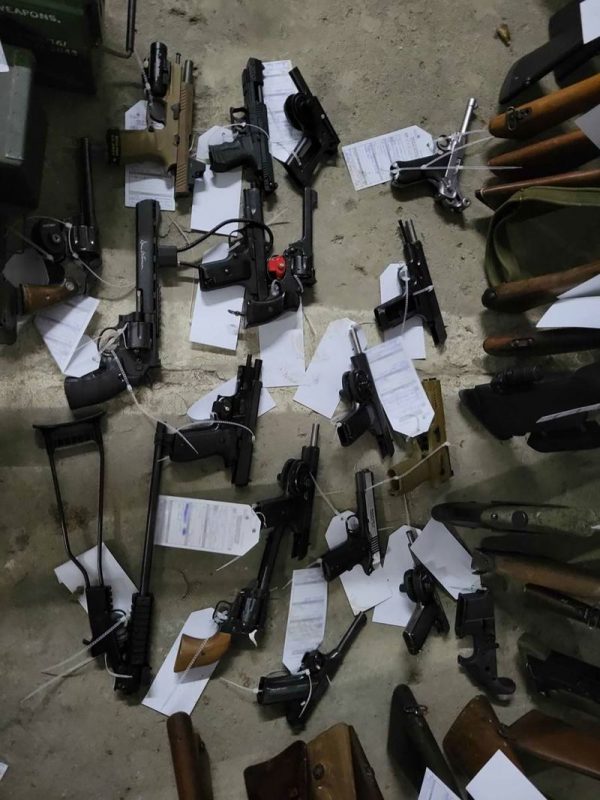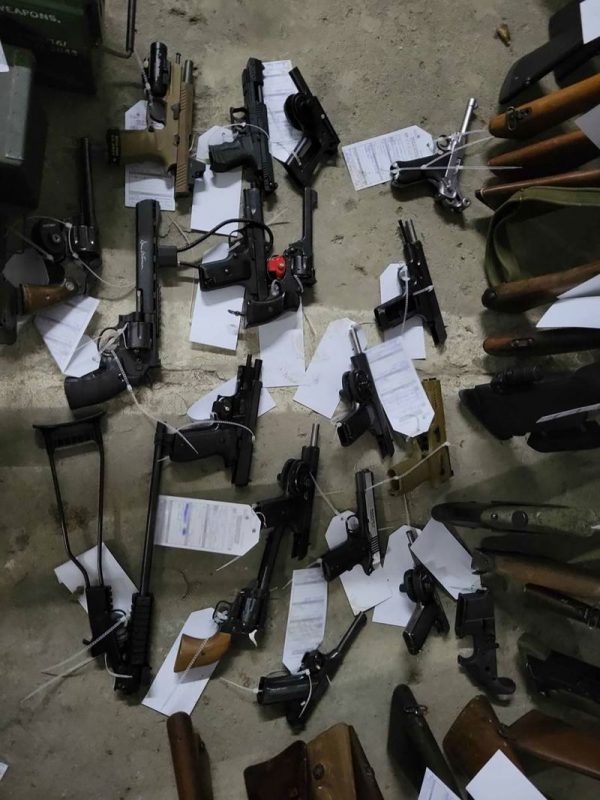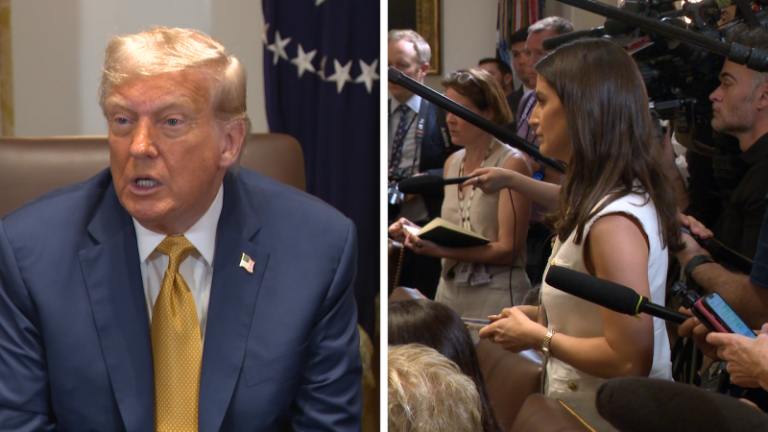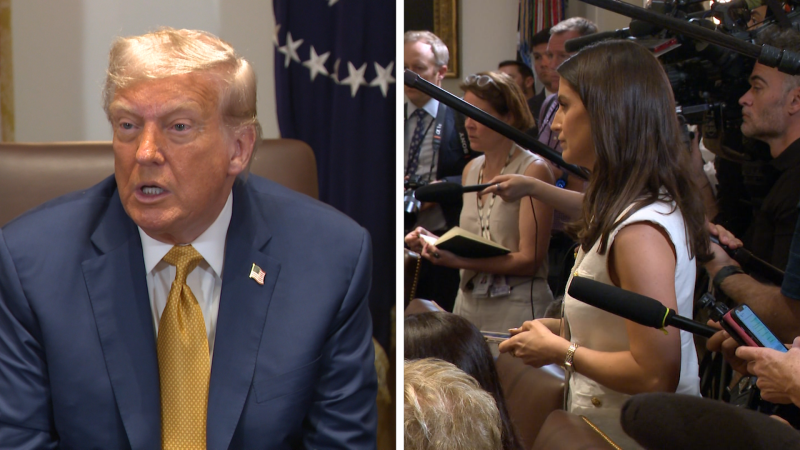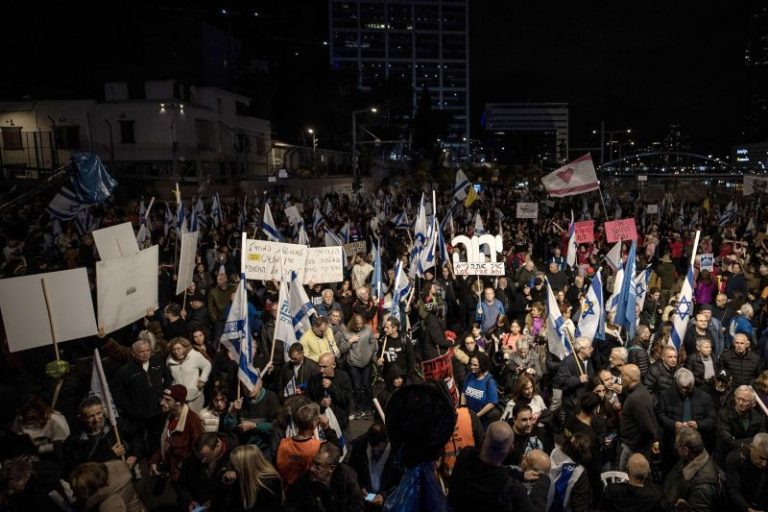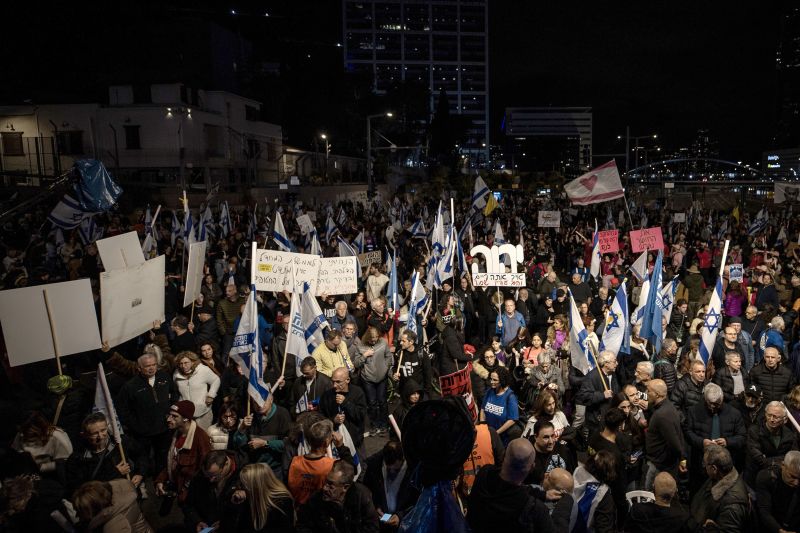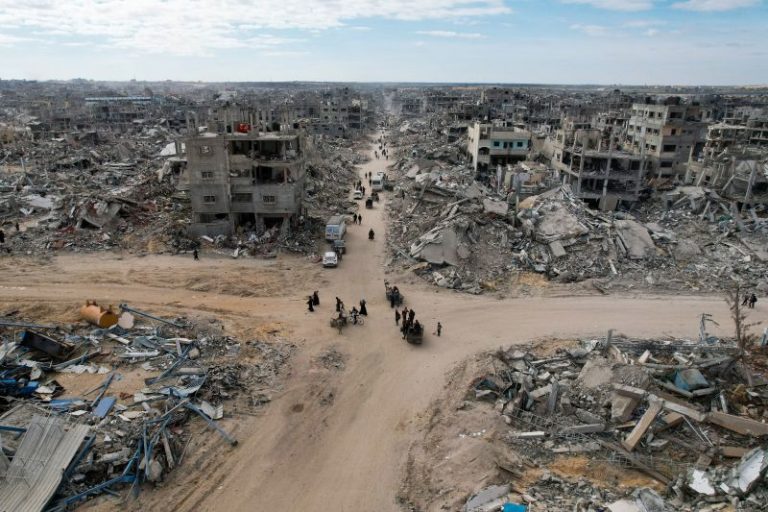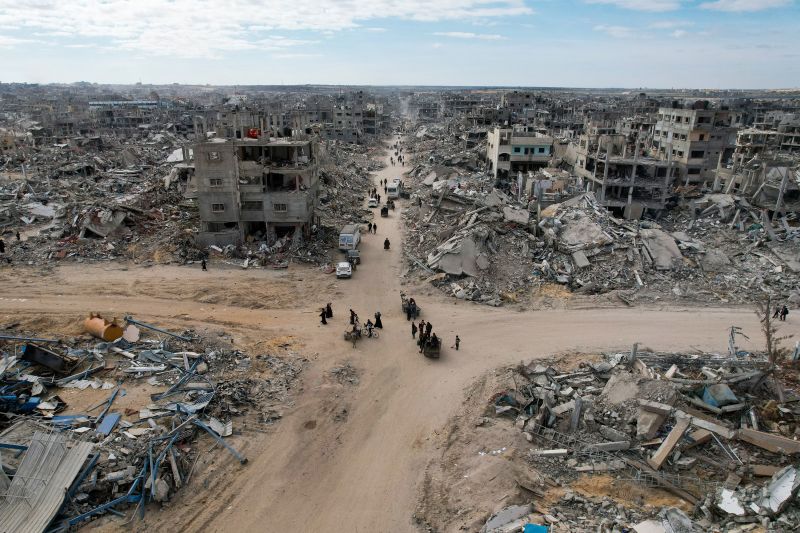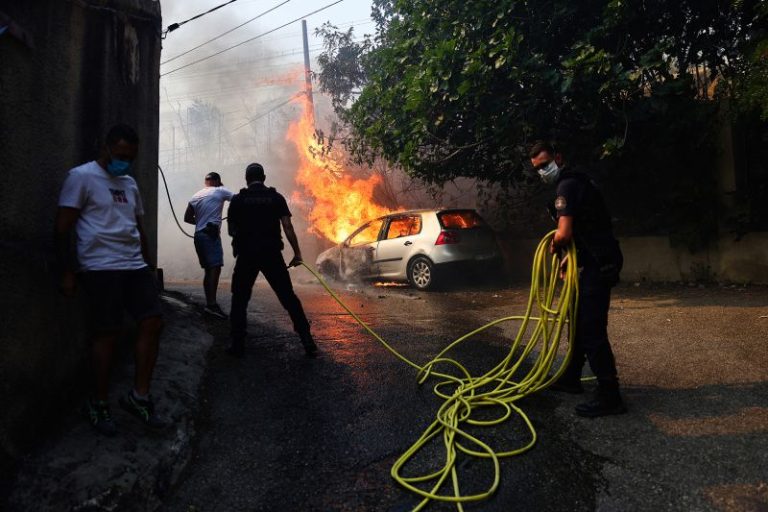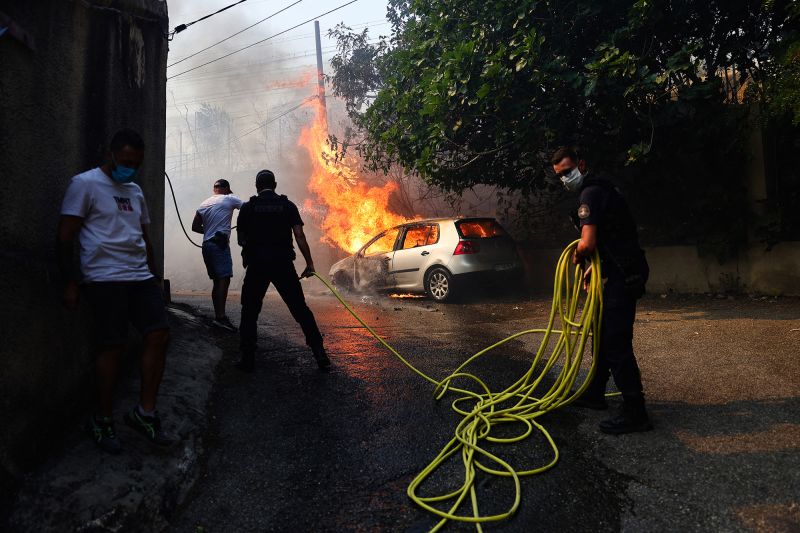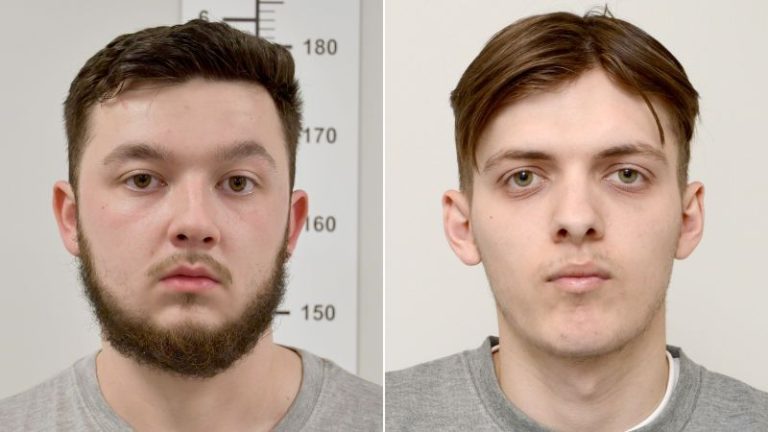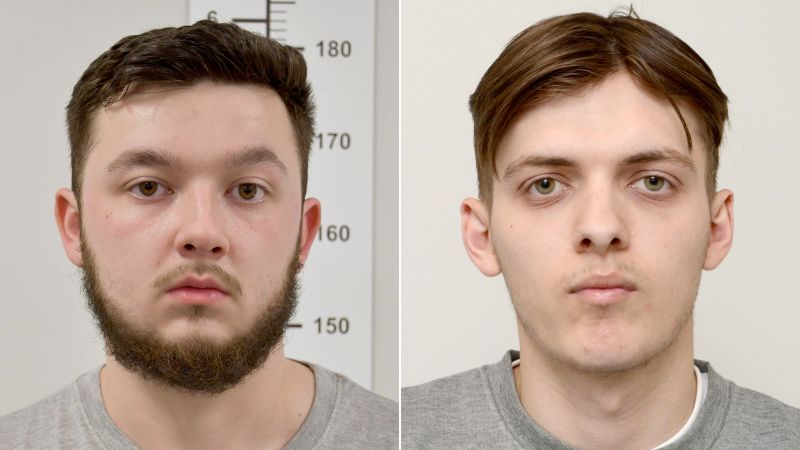
Dylan Earl said he needed a “fresh start” in life. Unsatisfied by his prospects in his dreary English town, he decided to orchestrate a terrorist attack in London on behalf of a Russian mercenary group.
If he’d had things his way, the 20-year-old, small-time drug dealer would have moved to Russia to join its military. He’d heard that he could make good money fighting for what he saw as a just cause but feared his lack of spoken Russian would hold him back.
As it happened, Earl was able to join the war from the comfort of his home in England’s Midlands. All it took was a simple “Hi” to an anonymous Telegram account called “Privet Bot” that was inviting Europeans to join the “resistance” against Ukraine’s allies.
Just five days later, Earl arranged for a group of men to set fire to a warehouse in east London, choosing the target because of its links to Ukraine. The next month, Earl was arrested and charged with aggravated arson and an offense under the UK’s new National Security Act, to which he pleaded guilty. A second suspect, Jake Reeves, would plead guilty to aggravated arson and another National Security Act charge.
More than a year on, six others stood trial between May and July at London’s Old Bailey in relation to the attack.
On Tuesday, three were convicted by the jury of aggravated arson, while a fourth – the man who prosecutors said drove them to the site – was acquitted of that charge, which he denied.
Of the two men accused of failing to inform the police of a potential terror attack, one was acquitted on two counts and the other found guilty on one count and cleared of a second.
British prosecutors said the “Privet Bot” account was associated with Wagner, a Russian mercenary group that has fought in Ukraine and maintained Moscow’s footprint in Africa. The account is now defunct, but correspondence revealed in the trial showed the length to which operatives went to recruit foot soldiers in the “shadow war” against the West.
Russia has not relied on well-trained agents in this campaign, but a network of low-level criminals: some sympathetic to Moscow’s cause, others simply wanting cash. Whereas espionage and sabotage used to take years to recruit and plan for, these operations now require just a few hours on Telegram and some cash. Analysts say this tactic is a dark spin on the modern “gig” economy: Hostile states use a young workforce that is temporary and flexible. The work is on-demand, just-in-time, no-strings-attached.
This has created headaches for those tasked with keeping Europe safe. Ken McCallum, the head of MI5, Britain’s domestic intelligence service, warned last year that Russia is on a “mission to generate mayhem on British and European streets.” Richard Moore, then head of MI6, the foreign intelligence agency, put it more bluntly: “Russian intelligence services have gone a bit feral.”
Some messages were deleted by the suspects, and investigators could not establish the identity of all the anonymous accounts involved. Where reproduced, some exchanges have been edited for clarity and length.
Earl made money dealing cocaine, with about £20,000 ($27,000) in cash and more in cryptocurrency to show for his exploits. But he wanted to make it big, and that meant getting out of England. One place in particular caught his eye.
It is not clear when Earl first became interested in Russia. On June 23, 2023, he joined a Telegram group called “AP Wagner Chat.” That same night, Yevgeny Prigozhin – then the head of Wagner – declared what would prove to be a short-lived mutiny against Russian President Vladimir Putin. Prigozhin died in a plane crash two months later.
Earl joined both smaller pro-Russian Telegram chats and larger groups such as “Grey Zone,” which boasted some 500,000 subscribers, and, according to British investigators, functioned as Wagner’s de facto mouthpiece. At least eight times between 2023 and 2024, the trial jury heard, the account promoted “Privet Bot,” encouraging people to join operations across Europe.
The account soon gave Earl his first target: a warehouse in Leyton, east London. The site was run by a Ukrainian man, whose businesses included delivering Starlink internet terminals to Ukraine – crucial technology for Kyiv’s war effort.
In case Earl was not sure what kind of work he was getting into, “Privet Bot” told him to watch the series “The Americans” – a Cold War drama in which Russian spies, embedded in Washington, DC, conduct dangerous missions for the Soviet Union.
Earl may have imagined himself as a Cold War-era spy, but much of that world has faded.
Landsbergis said it was like drones replacing legacy equipment on the battlefields of Ukraine. “They’re just cheaper, and as efficient to (achieve) your stated goals.”
Russia’s shift to this tactic may initially have been out of necessity. With hundreds of its diplomats and agents expelled from European countries in the wake of Russia’s full-scale invasion of Ukraine, Moscow had to get creative in how it conducted its operations.
But the tactic proved fruitful: Attacks like that in Leyton are cheap to set up, often deniable, and below the threshold likely to trigger a response under NATO’s Article 5.
Earl was committed to the mission; he just needed recruits. He found one in Reeves, a 23-year-old from Croydon, south London. It is not clear how Earl and Reeves first came into contact.
By day, Reeves worked as a cleaner at London’s Gatwick Airport. But in his ketamine-fueled nights, he became increasingly fascinated with his contact, Earl, whom he believed to be a Russian national, or at least a Russian speaker, with ties to the Kremlin.
While lacking Earl’s ideological fervor, Reeves could still help his cause by finding him willing foot soldiers. Prosecutors alleged he recruited Nii Mensah, now 23, another Croydon local who said he was “down for da cause,” as well as a large payday. Mensah appears to have recruited Jakeem Rose, also now 23, who lived near Mensah. Now they just needed a driver.
Paul English took a laxative on the evening of March 20, 2024, to prepare for his bowel cancer screening the next morning. Planning for a quiet night, the 61-year-old would instead find himself driving “cross-legged” across London.
His neighbor’s son, Ugnius Asmena, needed a favor. He and his mates needed a lift around the city. Might English be able to help out?
As English recalled in his police interview, Asmena’s offer was simple: £500 for a night’s work – half up front, the rest later. All he had to do was take him to Croydon, pick up a couple of others, then head north across the River Thames. English agreed, because he was “skint,” or broke. Soon after, he was driving towards Leyton with Asmena in the front, and two others – Mensah and Rose – in the back, prosecutors said.
English said he did as he was told: He drove to Leyton, filling a jerry can with gasoline en route, and waited in the car with Asmena, while Mensah and Rose got out to “do their thing.” Minutes later, the pair jumped over the fence and back into the car, leaving English to make their getaway.
Just before midnight, the London Fire Brigade was called to the Cromwell Industrial Estate. The blaze caused more than £1 million in damage, the court heard.
Later that night, Mensah Googled “Leyton fire.”
“Bro lol,” he said to Earl on Telegram. “It’s on the news.”
When the jury returned Tuesday after several days of deliberation, Asmena, Rose and Mensah were each found guilty of aggravated arson, charges they had denied. English was acquitted of the same charge, which he had also denied.
Burning a warehouse will not on its own tip the balance of the war in Russia’s favor. But cumulatively, such attacks can unsettle Ukraine’s Western backers.
According to a database of alleged Russian “shadow” attacks compiled by the US-based Center for Strategic and International Studies (CSIS) think-tank, the number carried out quadrupled between 2022 and 2023, then nearly tripled between 2023 and 2024.
These alleged attacks have included blazes at a shopping mall in Poland and an Ikea store in Lithuania, cyberattacks on Czech railways, and the vandalism of Jewish buildings in France. Russia has denied allegations of any involvement.
Recalling his time in office in Lithuania, Landsbergis said responding to such attacks felt like playing whack-a-mole: “You catch one and Russia easily replaces them with several others hired through Telegram.”
Galeotti, the Russia analyst, said this alleged campaign has two main goals: To show Europe that there are costs to backing Ukraine, and – even if the operations fail – to cultivate a “general sense of chaos” in Europe.
“Everything that goes wrong, someone sees the ‘dread hand’ of Putin behind it,” Galeotti said. “If nothing else, it makes the Russians seem much more powerful that they really are.”
Back in Croydon, Mensah wanted payment. But there was a holdup: Earl said he wouldn’t be paid until the Russians could judge the extent of the damage.
But “Privet Bot” wasn’t happy. It told Earl that he had jumped the gun. “We could have burned the warehouses much better and more if we had coordinated our actions,” it told him. As such, Earl wouldn’t receive the full fee.
Earl’s accomplices grew bitter – none more so than Mensah. Earl couldn’t stump up the cash for the first job, but felt he had something better: an even more lucrative contract for another arson attack – this time in London’s swish Mayfair district.
The targets were a restaurant and wine shop owned by Yevgeny Chichvarkin, a Russian businessman who had criticized the war in Ukraine. Earl went back to his UK contacts.
Reeves was happy to help, messages showed. He couldn’t be “broke forever,” he told his school friend, Dmitrijus Paulauskas, a Russian-speaking Lithuanian who moved to Britain when he was young. Although Paulauskas was not involved in planning the attack, in his messages he said he was “gassed” (excited) that Russia had “integrated into the UK underworld.”
Paulaskas was cleared by the Old Bailey jury on two counts of failing to disclose information about terrorist acts. Another defendant, Ashton Evans, 20, faced the same charges and was found guilty on one count and acquitted on the second.
While preparing for the attack in central London, Earl began to have grander ambitions. “Privet Bot” was encouraging: “You are wise and clever despite being young! We have a lot of glorious jobs ahead.”
But to recruit more people, Earl needed faster payments from Russia. Most of Earl’s messages to the bot were not recovered in the investigation, but one late-night, Google-Translated outburst had not been deleted, showing Earl pleading with his superiors to equip him to become “the best spy you have ever seen.”
The next day, Earl was arrested by British police. He pleaded guilty to aggravated arson and to an offense under the National Security Act. Reeves was arrested nine days later, and pleaded guilty to similar charges. Sentencing for Reeves and Earl – and the four others convicted – will take place at a later date, the UK’s Crown Prosecution Service said.
Historically, Moscow has gone to great lengths to reward and retrieve its spies. But these “gig economy” recruits can’t expect the same.
To Russia, they are disposable; to their home countries, they are traitors. In her summing up, the judge put it starkly: “Our parents and grandparents would have had a simple term for what Dylan Earl and Jake Reeves did: treason.”
Although sabotage is an old crime, Europe has struggled to combat the new ways of committing it. Landsbergis said Europe’s disjointed response meant Russia could act with impunity. Now, Europe should “go after the archer, not the arrows,” he said.
The tempo of Russia’s alleged attacks has, however, slowed in recent months, Galeotti noted, perhaps due to the success of European authorities in thwarting them and bringing the perpetrators to justice. Or, he said, Moscow may be taking stock of what it learned from 18 months of “entrepreneurial” thinking.
“I would love to think that it was just something they tried and then abandoned. But I have a feeling we’re going to see them return to it, having internalized the lessons of the first ‘test’ operations,” he said.
This post appeared first on cnn.com
